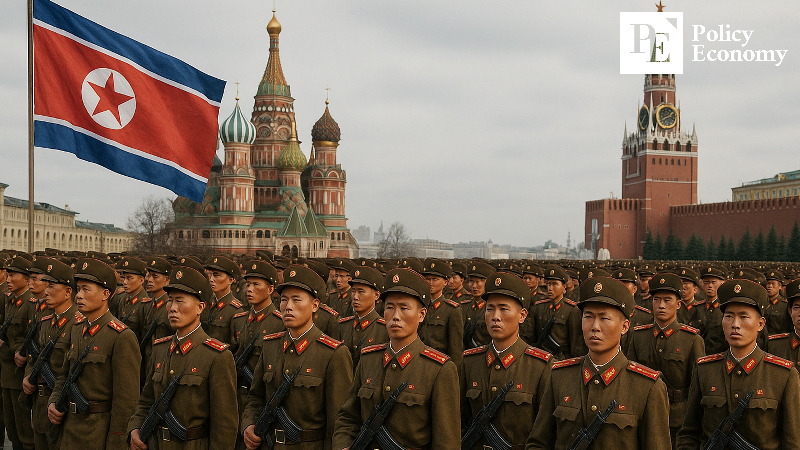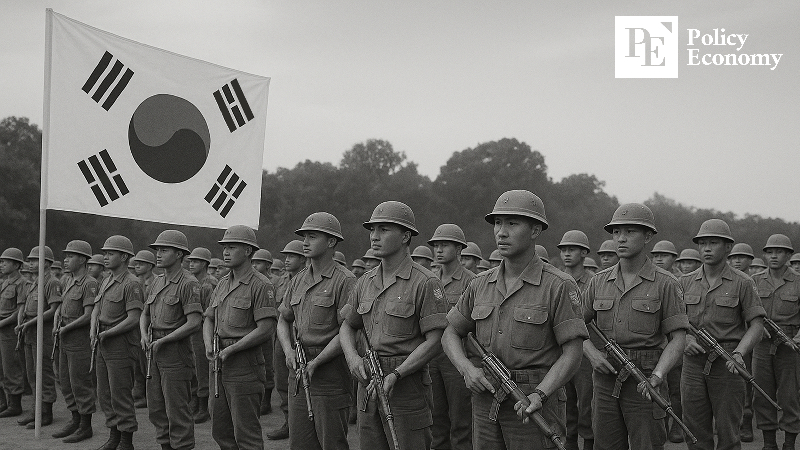“Following Vietnam Deployment Precedent?” North Korea to Send 30,000 More Troops to Russia
Input
Modified
Ukraine: “North Korean Troops to Be Deployed to Russia in Large Numbers” Report of 6,000 Troops Dispatched Last Month Is North Korea Dreaming of Its Own ‘Miracle on the Han River’?

A projection by Ukrainian authorities suggests that North Korea will deploy an additional contingent of up to 30,000 troops to Russia. This comes less than a month after reports of a 6,000-strong North Korean deployment, raising fresh speculation about further troop dispatches. Experts say North Korea’s aggressive move evokes comparisons to South Korea’s past deployment of troops to the Vietnam War.
North Korean Troops to Be Deployed Again to Russia?
According to CNN on the 2nd (local time), Ukrainian intelligence authorities anticipate that North Korea will send an additional 25,000 to 30,000 troops to support Russia in the ongoing war with Ukraine. Analysis documents obtained by CNN from Ukrainian intelligence suggest that these additional North Korean forces are expected to arrive in Russia within a few months. Russia’s Ministry of Defense is reportedly already prepared to provide the necessary equipment, weapons, and ammunition to integrate the North Korean soldiers into its units. Ukrainian authorities believe these troops will participate in combat operations in occupied Ukrainian territories, boosting Russia’s combat capabilities and supporting large-scale offensive campaigns.
Authorities have also detected signs that Russia is refurbishing vehicles for troop transport. Indeed, satellite images obtained by CNN show a transport vessel of the same type used to ferry North Korean troops last year arriving at Dunay Naval Base near Vladivostok, Russia, on May 18. On June 4, a transport aircraft believed to be an Ilyushin IL-76 was spotted at Sunan International Airport in Pyongyang.
However, some experts argue that Ukraine’s estimate of 25,000 to 30,000 troops may be exaggerated. Jenny Town, a senior fellow at the nonpartisan think tank Stimson Center, which specializes in global peace and security issues, noted, “North Korea certainly has the capacity to provide that number of troops, but they’re unlikely to be elite forces.” She added, “Since Kim Jong-un has pledged full support, it all depends on what Russia has requested.” She continued, “A force of 10,000 to 20,000 seems more realistic,” and noted that “there are already rumors that Russian generals have been training troops in North Korea.”
Heavy Casualties Among North Korean Forces
This is not the first time news has emerged of additional North Korean troop deployments to Russia. Last month, Sergei Shoigu, Secretary of the Russian Security Council, visited North Korea and met with North Korean leader Kim Jong-un. He later told Russian media that North Korea had agreed to send 1,000 engineering troops to remove landmines in Russian territory and two brigades of military construction personnel totaling 5,000 to rebuild infrastructure damaged by Ukrainian attacks.
Shoigu stated at the time that “this deployment is part of North Korea’s fraternal support for Russia” and emphasized that constructive cooperation between the two countries would continue. North Korea’s state-run Korean Central News Agency also reported around the same time that “within the scope of the treaty between the two countries, the Republic has confirmed areas of cooperation and accepted related plans,” although the specifics of the agreement were not disclosed. Analysts suggest that Pyongyang’s decision not to inform its citizens of potentially casualty-inducing deployments aims to prevent domestic unrest.
The ongoing discussions between North Korea and Russia about troop reinforcements are largely driven by the severe troop losses North Korea has suffered in the prolonged conflict. In November of last year, North Korea sent approximately 11,000 troops to Russia. These soldiers were deployed to the western Kursk front—occupied by Ukrainian forces—but reportedly sustained significant casualties and were withdrawn to the rear last month. Western authorities estimate that 4,000 to 6,000 North Korean troops have been killed or gone missing. Ukrainian Army Commander-in-Chief Oleksandr Syrskyi also stated in an interview last month that North Korean forces had been reduced by nearly half within just three months of deployment.

Precedent of South Korea’s Overseas Deployment
Some observers draw parallels between North Korea’s deployment and South Korea’s dispatch of troops to Vietnam from 1964 to 1973. The Vietnam deployment was a strategic move by Seoul to keep U.S. troops stationed on the Korean Peninsula. At the time, the United States intended to redeploy two divisions of U.S. Forces Korea to the Vietnam War, and there was concern that these troops might not return. For South Korea—which lagged behind North Korea in military and economic terms—this posed a serious national security threat. To prevent the U.S. withdrawal, the Park Chung-hee administration offered to send South Korean troops to Vietnam instead.
Some experts believe this deployment laid the groundwork for South Korea’s “Miracle on the Han River,” its period of rapid economic growth. A diplomatic expert noted, “The inflow of U.S. dollar allowances for soldiers and construction fees earned by companies provided a springboard for Korea’s economic recovery,” and “this foreign capital helped the country build infrastructure such as the Gyeongbu Expressway.” The expert cautioned, however, “We must not forget that a total of 320,000 South Korean troops were dispatched, and a tragic 5,099 of them died.”
North Korea likely also expects similar economic gains. According to South Korea’s National Intelligence Service, North Korean soldiers deployed to Russia are reportedly paid USD 2,000 per month. In 2023, North Korea’s gross national income (GNI) per capita translated to approximately USD 96.20 per month—making this salary over 20 times higher. If 30,000 troops are deployed as forecasted by Ukrainian authorities, the influx of foreign currency could significantly benefit North Korea’s economy. This is why many expect Pyongyang to continue deploying troops, mirroring South Korea’s Vietnam War precedent.





















